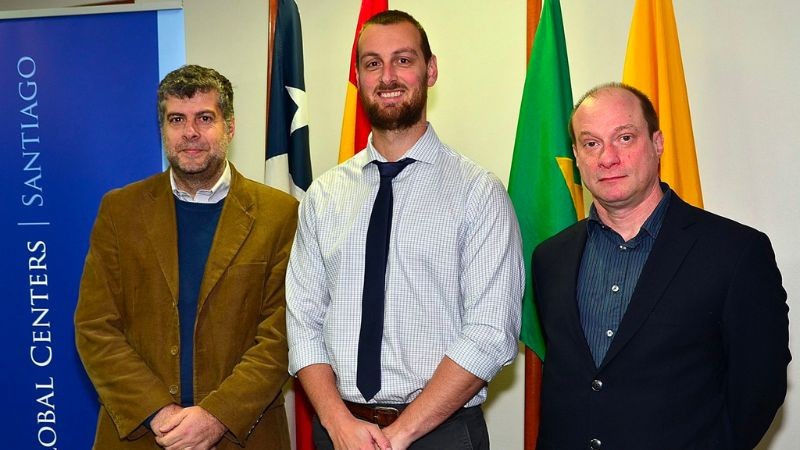During the last few years, Chile has been hit by record-high temperatures and an ongoing drought. This combination, which has had a strong impact in the agriculture sector, was a key determinant behind the wave of wild fires that struck the Central-South of the country last January. It has also translated in a process of receding and melting of glaciers in both the Andes mountain range and in the Patagonia region. These topics were addressed in a panel discussion featuring two top scientists from Columbia’s Lamont-Doherty Earth Observatory (LDEO), Park Williams and Mike Kaplan, who discussed the impact of climate change in Chile’s forests and glaciers, respectively. They were joined in the discussion by Francisco Meza from Universidad Católica’s Centro de Cambio Global.
The widely-attended event was also co-sponsored by the Center for Climate and Resilience (CR) 2 and Universidad de Chile’s Center of Business Leaders against Climate Change. Park Williams also traveled to Valparaíso to give a lecture on the topic at Universidad Católica de Valparaíso. Mike Kaplan has been spending the Spring Semester in Chile as a Fulbright scholar at Universidad de Magallanes in Punta Arenas and at Universidad Católica studying the current and historic trends in glacier behavior. To read an interview he granted to local LUN newspaper click here.
